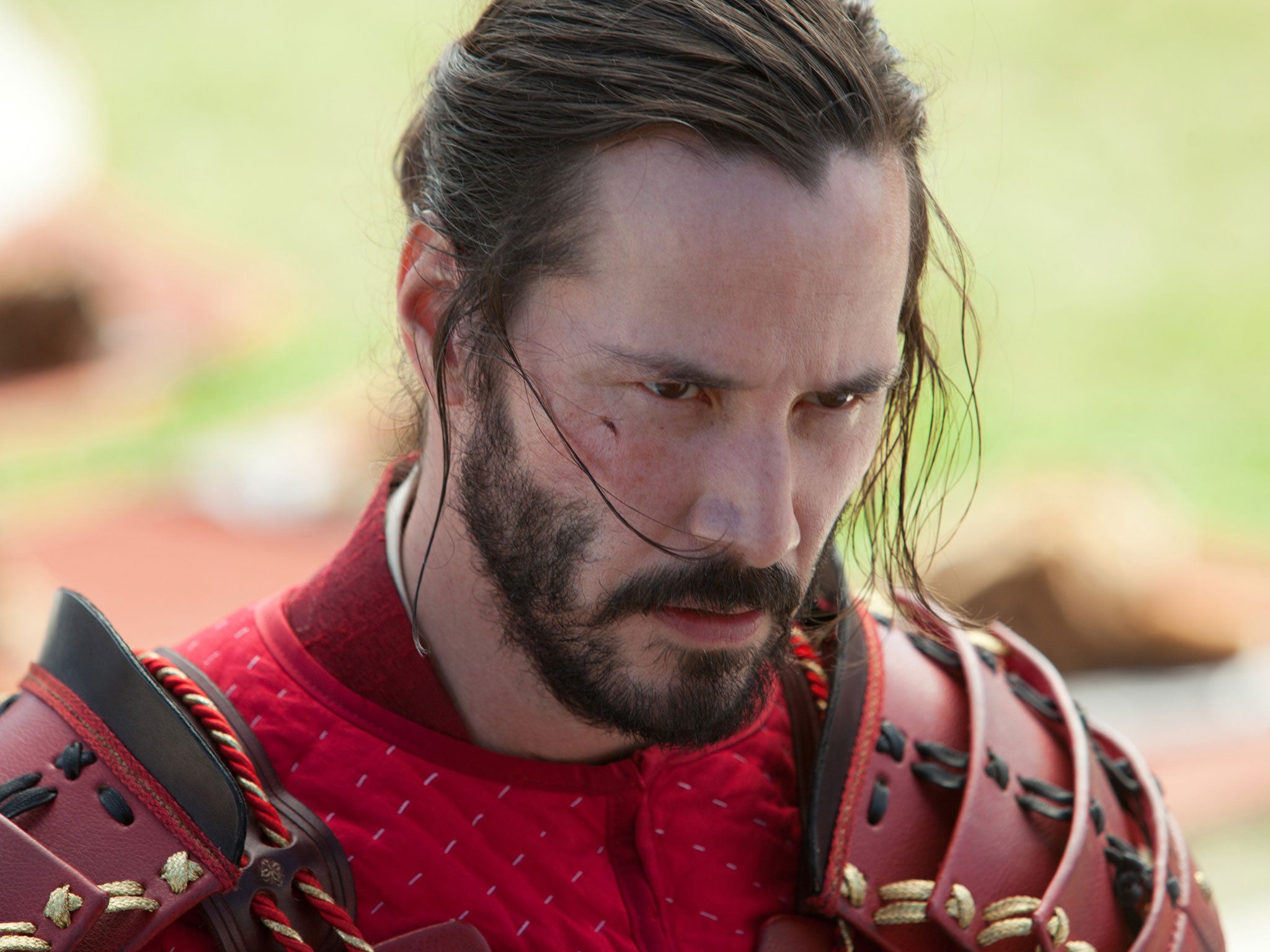47 Ronin review: Keanu Reeves struggles to give feeling and meaning to lines in big-budget sword fantasy

Based on a Japanese legend, this is a big-budget sword-and-sorcery fantasy which combines tremendous action sequences with utterly leaden plotting and dialogue.
The 47 Ronin are the samurai who set out to avenge the death of their master, Lord Asano (Min Tanaka). The hitch is that in doing so, they are disobeying the Shogun and are therefore likely to die whether or not they succeed. Keanu Reeves is Kai, a half-breed initially treated with disdain by Asamo’s samurai in the village where he has been raised as an orphan. He and Asano’s daughter, Mika (Ko Shibasaki), are madly in love, but he is regarded as an outcast... until his warrior prowess wins over the doubters.
In its use of colour, ritual and in its elaborately choreographed fight sequences, the film rekindles memories of Zhang Yimou’s Crouching Tiger, Hidden Dragon and Hero. Early on, there is an exhilarating chase sequence in which the samurai hunt down a vicious, prehistoric-looking monster. The film has a memorable villain in the shape of Mizuki (Rinko Kikuchi), a beautiful witch with different coloured eyes, who can assume the shape of lizards, wolves and demons (and who can seemingly even use her hair as chopsticks). The main villain, Lord Kira (Tadanobu Asano), is also good value, sporting a malign grin as he plots new misdeeds.
The Japanese actors declaim corny English dialogue with a notable lack of conviction. Keanu Reeves acquits himself well enough in the fight sequences, but likewise struggles to give feeling and meaning to lines that frequently verge on the preposterous. It doesn’t help, either, that the film-makers seem uncertain whether Reeves’ character is the film’s main star or is there in a supporting capacity to Osihi (Hiroyuki Sanada), the Samurai leader. However, the last battle is staged with tremendous verve and the ritualistic finale combines pathos and grandeur.
Subscribe to Independent Premium to bookmark this article
Want to bookmark your favourite articles and stories to read or reference later? Start your Independent Premium subscription today.

Join our commenting forum
Join thought-provoking conversations, follow other Independent readers and see their replies